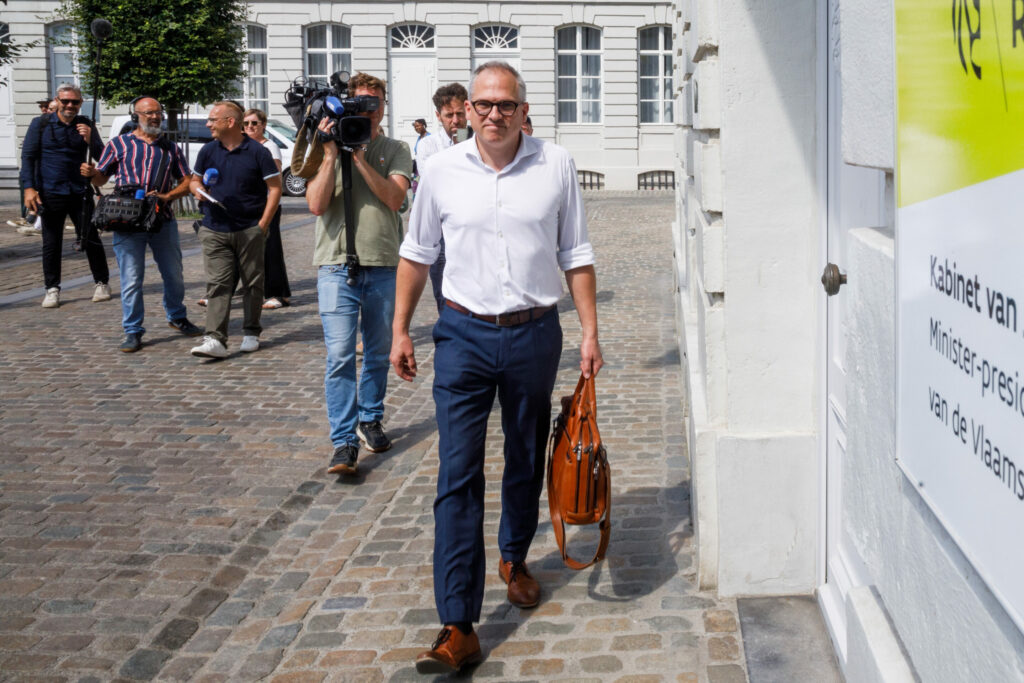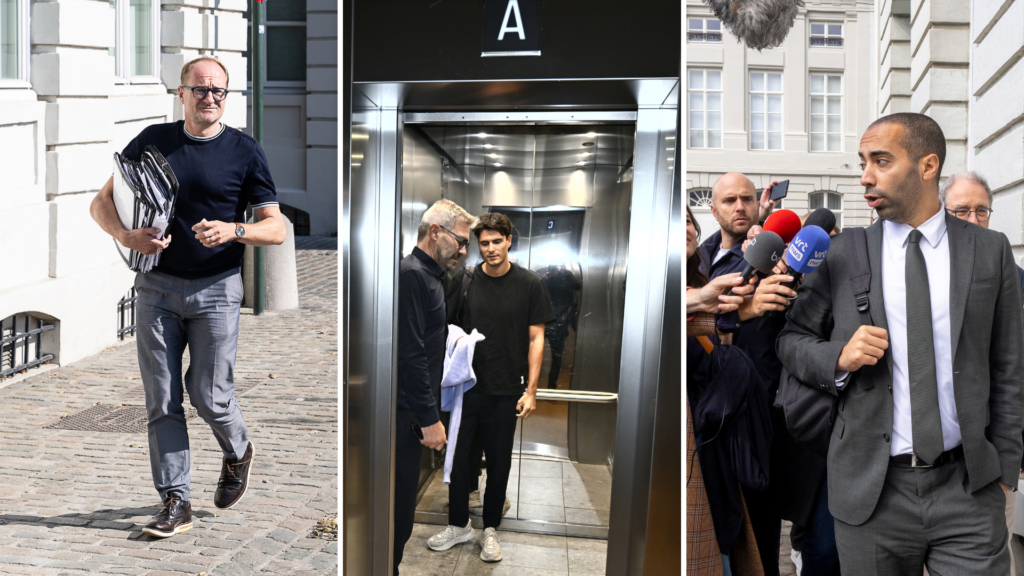The N-VA, Vooruit, and CD&V parties have formed a coalition government in Flanders following extensive overnight negotiations, formateur Matthias Diependaele (N-VA) announced on Saturday morning.
Negotiations started at 13:00 on Friday and continued until 05:00 on Saturday, working to resolve key issues such as the ban on headscarves for teachers and reintroducing mandatory voting in local elections.
N-VA sought an absolute ban on Flemish civil servants wearing any political or ideological symbols, such as a headscarf. But this was opposed by Vooruit. With municipal elections in just two weeks, this is a divisive topic among parties and the electorate, De Standaard reports. N-VA also proposed reducing the number of seats in the Flemish parliament from 124 to 100 – something opposed by the CD&V, who argued it would mainly benefit Vlaams Belang.
Ideological tensions between right-wing N-VA and socialist Vooruit have shaped much of the negotiations. But common ground was found on some issues that have been central to N-VA's stance on Flemish identity. For instance, Vooruit chairman Conner Rousseau was willing to allow sanctions to be imposed on non-native-speaking parents who do not want to learn Dutch. Failure to participate in a language course will lead to the loss of their school bonus.
The agreement, which is set out in a document of 203 pages, has been titled "Working Together for a Warm and Prosperous Flanders". It aims to make Flanders a region of high living standards and enterprise, though acknowledges challenges such as an ageing population, climate change, the need for affordable housing, and the geopolitical landscape.
A 'creative' approach to compromise
Other notable agreements included the commitment to enhance the administrative organisation of Flanders and work on making authorities more efficient. This will involve evaluating all intermediate structures and their functions to decide if they can be incorporated with cities, municipalities, or the Flemish government.
Also high on the agenda was the nitrogen dossier, which sets limits on nitrogen emissions as part of the region's environmental obligations to conform to the EU's Green Deal. This topic caused heated debates in the previous administration and was strongly opposed by the agricultural community as some of the region's more polluting pork and cow farms would be obliged to cease operations.

N-VA's Matthias Diependaele at a meeting between representatives of political parties N-VA, Vooruit and CD&V on 13 August 2024 in Brussels. Credit: Belga
The coalition agreement follows three months of negotiations and marathon meetings. The negotiators even had fast food served to journalists who were reporting on the progress on Thursday night.
Ministerial positions still have to be allocated, and some were coveted by several parties. For instance, socialists Vooruit have pushed for their former president Caroline Gennez to become Education Minister, though N-VA was resistant to removing the position from Ben Weyts, who held it in the last government.
“We sought a creative way to unite the different parties and I think we succeeded,” Diependaele said afterwards. The distribution of government portfolios is expected to be concluded by the end of the weekend.

